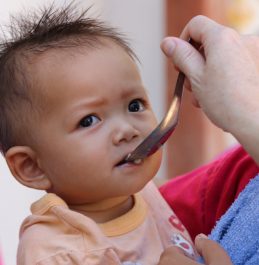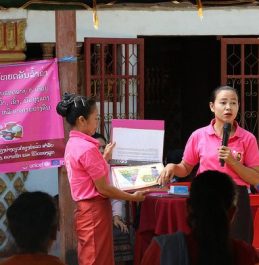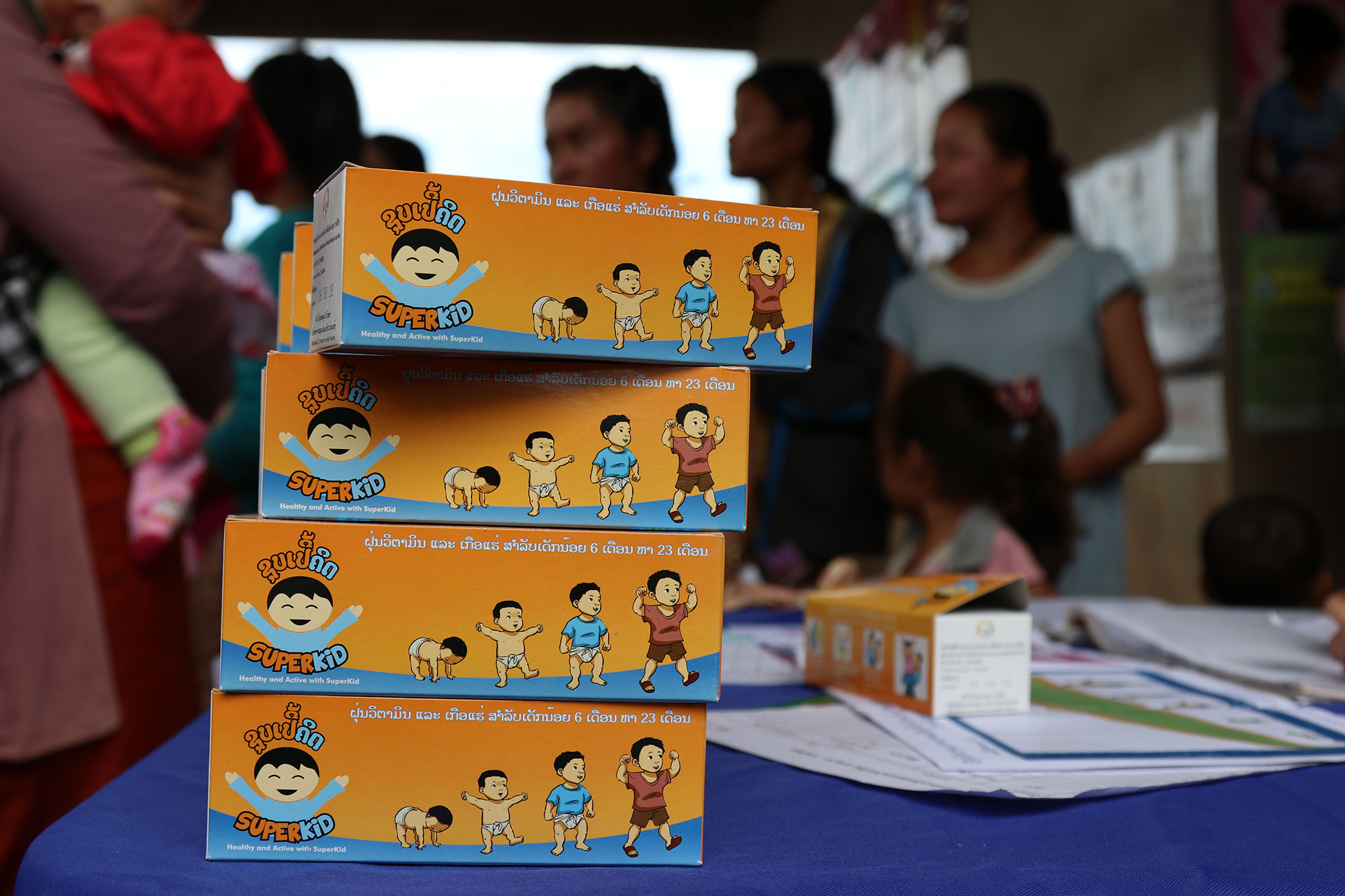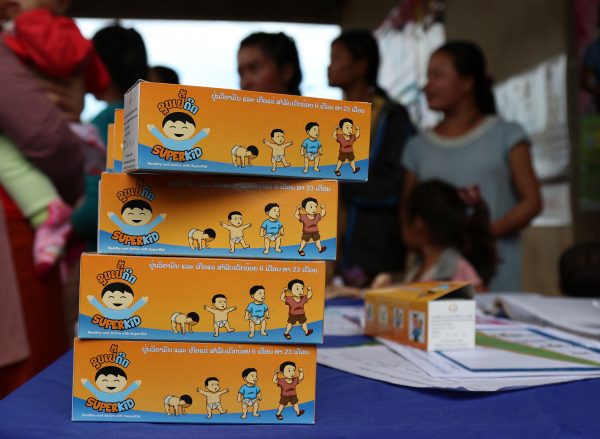The 1000 Day Project recognises the first 1000 days of life – from pregnancy until two years of age – as absolutely critical for intellectual and physical development. The project has been successful in reducing stunting and iron deficiency anaemia in children under two through community outreach, education, and provision of micronutrient supplements.
By partnering with UNICEF, the Lao Women’s Union and the Lao Ministry for Health, MMG is building wealth for its host communities, with programs that provide lasting benefits to national maternal and child health in Laos.
Since 2012, MMG has invested approximately US$3 million to support maternal and child health in Laos.
Phase 1 of the project saw a rollout of nutritional supplements (‘Superkid’ sachets), training programs, and providing access to health services such as inoculations, health monitoring, and hygiene education. You can read more about our work with the 1000 Day Project.
MMG remains committed to working with our project partners to help deliver Phase 2 of the project. The focus of Phase 2 is to support mothers and children in the Savannakhet, Saravane and Attapeu provinces while expanding assistance in the Houaphanh province.
To date the 1000 Day Project has helped over 150,000 children and their families, distributed approximately three million ‘Superkid’ micronutrient sachets and trained over 1,900 Health Workers who volunteer to pass on their health and nutrition knowledge to the community. Children anaemia and stunting levels in the four provinces have significantly improved from 2012 to 2015. Anaemia levels have reduced by 4.4% and trends in stunting has dropped from 54% to 41%.
One component of the 1000 Day Project that makes a significant impact is the Breastfeeding Education program, implemented by the Lao Women Union’s volunteers.
“The breastfeeding education program has been really effective in a country where mothers traditionally feed their children sticky rice. This can result in a permanent physical and cognitive impairment as a result of stunting and malnutrition,” said Rebekah Kofoed, UNICEF Australia’s International Programme Coordinator. “The breastfeeding program has been really successful. This initiative is important to put alongside the distribution of sprinkles because it supports the whole nutrition picture for the child during their first 1000 days.”
This vital work between MMG, experienced partners, governments and local communities continues to bring visible health outcomes and opportunities for those in need.
For more information on the 1000 Day Project, watch the video above.
-
 Superkid sprinkles can be mixed with regular food to help provide children with essential minerals and vitamins.
Superkid sprinkles can be mixed with regular food to help provide children with essential minerals and vitamins. -
 Lao Women Union volunteers present on the importance of breastfeeding at NaHang Noi Village.
Lao Women Union volunteers present on the importance of breastfeeding at NaHang Noi Village.





